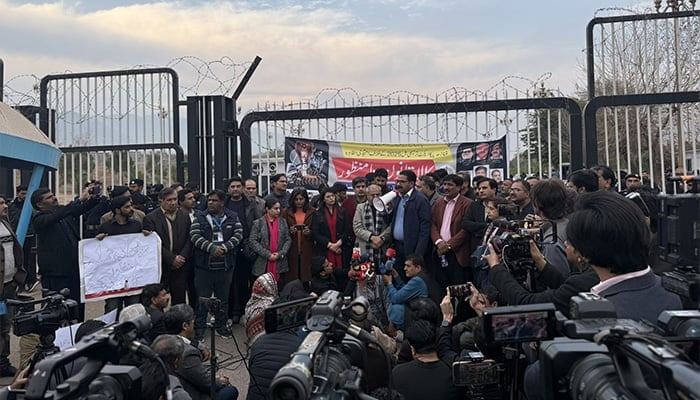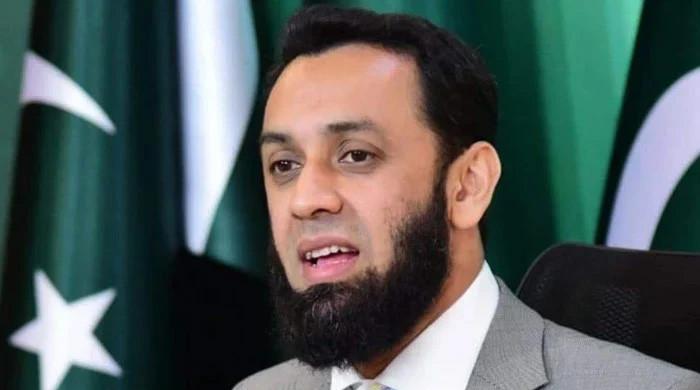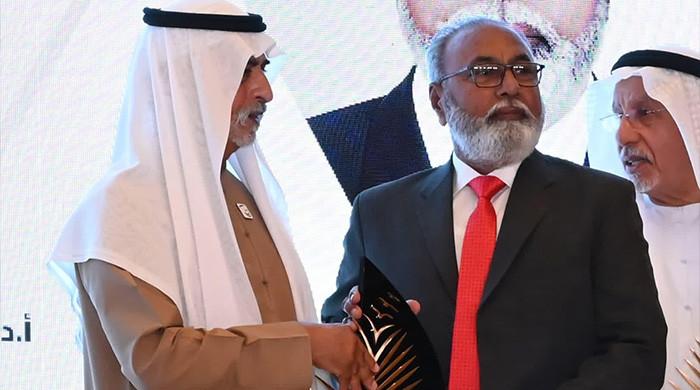Media bodies announce 'besieging parliament' to protest against Peca amendments
Long march, sit-ins, and voluntary arrest movement to be launched against Peca tweaks, announces PFUJ
February 01, 2025

- PFUJ terms Peca tweaks serious assault on freedom of press
- Announces to stage protest rallies in Lahore, other cities.
- JAC to move court against controversial Peca amendments.
LAHORE: Media bodies have decided to intensify their movement against the controversial amendments to the Prevention of Electronic Crimes Act (PECA) 2016, announcing besieging parliament in the next phase of protests.
In a statement, Pakistan Federal Union of Journalists (PFUJ) Secretary General Arshad Ansari unveiled the plan for organising nationwide rallies and protests under the Joint Action Committee (JAC).
He also revealed that the media fraternity aimed to stage a long march to the Parliament House, sit-ins and "Jail Bharo Tehreek [court arrest movement] against the Peca tweaks".
"Peca amendment bill is a serious assault on the freedom of press," said Ansari, adding: "Trade unions, human rights organisations, and civil society will hold joint protests."
Subsequently, the PFUJ and the JAC would also move the high court to challenge the amended law.
He further detailed that rallies would be taken out from all press clubs in all cities, including Lahore, which would merge into a massive rally at the Islamabad press club.
The PFUJ secretary general said that the participants of the central rally will besiege the parliament after advancing from the Islamabad press club to the Parliament House. However, he did not disclose the date of the rally in today's statement.
The development came a day after Federal Information Minister Attaullah Tarar invited protesting journalist bodies for discussions on contentious clauses in the Peca law.
"There is always room for improvement in laws," said Tarar, criticising that protests were being staged against the Peca but nobody was discussing the provisions.
Tarar's invitation for consultations came when journalists and media bodies were observing a Black Day under the JAC's umbrella.
To record their protest, black flags were hoisted at press clubs across the county and on the union’s offices, while journalists wore black armbands.
Contentious Peca amendments
The recent amendments made to the country’s cybercrime laws included new definitions, the establishment of regulatory and investigative bodies, and stricter penalties for disseminating "false" information.
The new amendments lowered the punishment for spreading “fake information” online to three years while the offender could also face a fine of up to Rs2 million.
Meanwhile, the new amendments also proposed the establishment of the Social Media Protection and Regulatory Authority (SMPRA), the National Cyber Crime Investigation Agency (NCCIA) and the Social Media Protection Tribunal.
Furthermore, it stated, that any person "aggrieved by fake and false information" can approach the authority for removal or blocking access to such information and the authority would issue orders no later than 24 hours on the request.
The fresh changes also stated that the authority might require any social media platform to enlist with it in any manner, form and on payment of such fee as may be prescribed.
Additionally, the new amendments also proposed the constitution of a Social Media Complaint Council to receive and process complaints made by aggrieved parties against violation of any provision of the cybercrime law.
It also proposed the establishment of Social Media Protection Tribunals. Each tribunal will consist of a chairperson qualified to be a high court judge, a journalist registered with a press club, and a software engineer.
Tribunals must resolve cases within 90 days, with appeals allowed to the Supreme Court within 60 days.
It also proposed the establishment of an investigation agency to be called the National Cyber Crime Investigation Agency (NCCIA) for inquiry into, investigation and prosecution of the offences specified under this Act.











